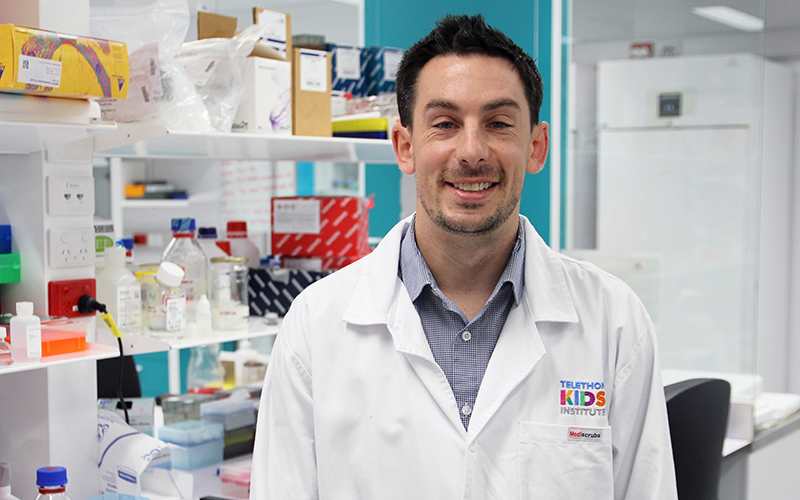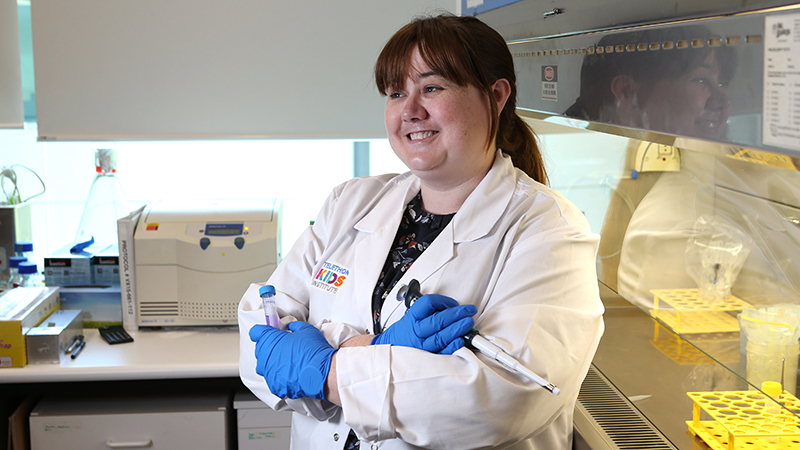Search
Research
Clinical Implications of Minimal Residual Disease Detection in Infants With KMT2A-Rearranged Acute Lymphoblastic Leukemia Treated on the Interfant-06 ProtocolInfant acute lymphoblastic leukemia (ALL) is characterized by a high incidence of KMT2A gene rearrangements and poor outcome. We evaluated the value of minimal residual disease (MRD) in infants with KMT2A-rearranged ALL treated within the Interfant-06 protocol, which compared lymphoid-style consolidation (protocol IB) versus myeloid-style consolidation (araC, daunorubicin, etoposide/mitoxantrone, araC, etoposide).
Research
SNAIL trail in myeloid malignanciesTranscription factors known to induce the epithelial-to-mesenchymal transition (EMT) (such as ZEB1/2 [zinc finger E-box binding homeobox 1/2], SNAI1/2/3, and TWIST1/2) have been undoubtedly implicated in tumorigenesis, cancer progression, metastasis, and chemoresistance in solid tumors; however, their role in normal and malignant hematopoiesis has been underappreciated for many years.
Research
Exposure to diagnostic radiological procedures and the risk of childhood acute lymphoblastic leukemiaDiagnostic irradiation of the mother during pregnancy increases the risk of childhood acute lymphoblastic leukemia

News & Events
World-first clinical trial in ‘man’s best friend’ could unlock treatment breakthrough for kids with cancerThe Kids Research Institute Australia is leading a unique clinical trial in pet dogs that could pave the way for a new immunotherapy treatment for one of the most common childhood cancers, Sarcoma.

News & Events
Trial of new antibody gives hope to children suffering from brain cancerChildren with aggressive brain cancers could soon have access to a significant new treatment option, using a unique antibody that stops cancer cells from repairing themselves.

News & Events
The Kids Research Institute Australia Cancer Centre Researcher wins Cancer Council WA FellowshipCancer Council WA has awarded a Post-Doctoral Fellowship to Dr Ben Wylie, for his project to help kids with sarcoma.

News & Events
“Natural killer” donor cells fighting kids leukaemiaNew research by The Kids shows donor immune cells are highly effective at boosting the body’s response against leukaemia.

News & Events
WA Child Research Fund grants boost research for premmies, kids with cancer and rare diseasesThe Kids Research Institute Australia researchers have been awarded 12 of 16 grants under the latest round of funding from the WA Child Research Fund
News & Events
Ependymoma Awareness DayEthan was not even two when he was diagnosed with a rare type of brain tumour known as an ependymoma.

News & Events
World-first research to transform outcomes for First Nations children with cancerA first of its kind research program at The Kids Research Institute Australia aims to develop new strategies to better treat First Nations children with cancer.
